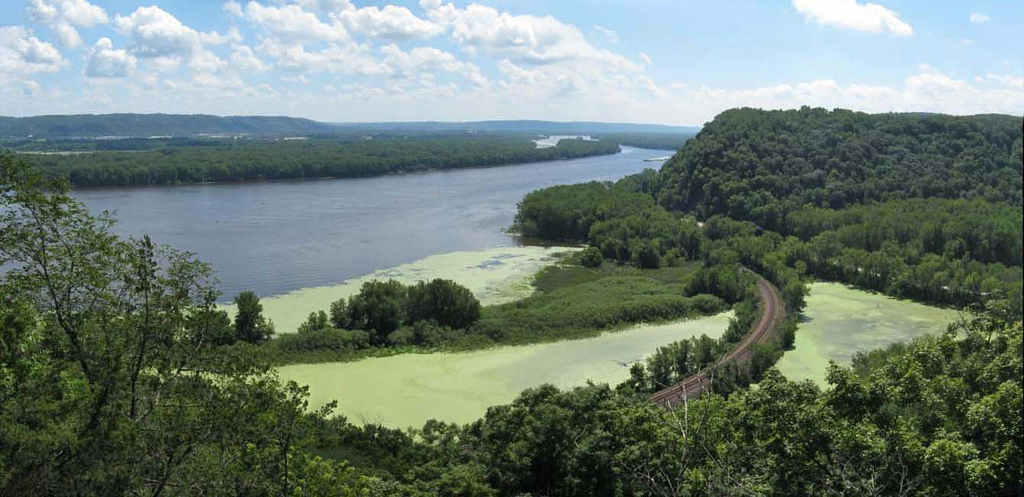Is it time for the federal government to drop the hammer on the farmers whose fertilizer gushes into the Mississippi River, fueling sweeping dead zones in the Gulf of Mexico? The Environmental Protection Agency now has six months to decide.
The deadline comes via a federal judge in New Orleans in response to a lawsuit from the Natural Resources Defense Council and other environmental groups. The enviros argue that states aren’t doing enough to tackle the problem, and have petitioned the feds to use the Clean Water Act to take charge. But the EPA has been wishy-washy, neither agreeing nor disagreeing that regulating the nutrient runoff should be its responsibility.

Travis S.The Mississippi River is loaded with nutrients that fertilize algae outbreaks.
From the New Orleans Times-Picayune:
[The environmentalists’] petition asked EPA to establish numerical water quality standards for nitrogen and phosphorus pollution in the Mississippi River and the northern Gulf of Mexico. They also asked EPA to establish “total daily maximum loads,” specific numerical amounts of the two pollutants that would be allowed in individual segments of the river and its tributaries.
The daily loads would impact any existing and future permits for pollution sources along those stretches, likely polluters to reduce the release of nitrogen and phosphorus when permit renewals or new permits were requested.
Thanks to the new ruling, the EPA’s indecisiveness should evaporate before next summer’s oxygen-starved dead zone takes root. On Friday, U.S. District Judge Jay Zainey announced that the EPA must rule within 180 days on whether federal regulations are necessary.
Here’s one of NRDC’s Midwestern attorneys, Ann Alexander, doing a touchdown dance in a blog post:
EPA has repeatedly gone on record saying that states have not done enough to solve the problem, and that federal action is hence necessary to set numeric limits on nitrogen and phosphorus to aid the process of setting discharge limits in permits. Yet when NRDC and some of our partners in the Mississippi River Collaborative filed a petition in 2008 asking that EPA render a formal decision that federal action is necessary, the agency balked…
But EPA’s days of waffling are now over. The court has ordered it to tell us, point blank, whether federal intervention is or is not necessary to address the problem.
Here’s hoping the EPA steps up and does what the states have been unwilling or unable to do: Protect the Gulf from farms that overload their land with fertilizer, laying waste to some of the nation’s most productive fishing grounds.


